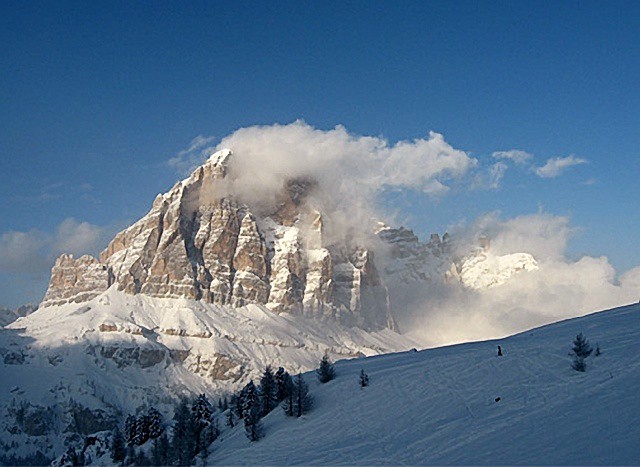Though the general consensus around the 2022 Winter Olympics in Beijing is that they were rather dismal, there were exceptional moments that captured the essence of what makes the games so special. To our delight, Swiss and Italian athletes were often at the center of these bright moments of triumph and we were thrilled to be able to cheer on two of our favorite nations.
Switzerland’s Golden Olympics
Switzerland ranked eighth in medals overall, with seven gold medals, two silver, and five bronze. Their 14 total fell just short of the goal of 15 they had set, but still put them firmly in the top ten nations among the winter sports powerhouses of the world.
The biggest victors were in the skiing and snowboarding events, no surprise in this Alpine country where many residents ski from the time they are tots. Switzerland brought home two gold medals in downhill skiing and one each in super-G, giant slalom, alpine combined, free ski slopestyle, and ski cross. The Swiss team’s two silvers were in ski cross and combined, and their five bronzes were split among giant slalom, big air, slalom, halfpipe, and super-G.
That’s not to say there weren’t a few heartbreaks. Ski cross bronze-medalist Fanny Smith was disqualified after the race and stripped of her medal for coming into what judges believed was intentional contact with a fellow skier coming around a turn. The decision has been appealed by the Swiss Ski Federation but the moment caused outrage among fans of the ski-cross superstar. It was also a disappointing games for four-time Olympic champion in ski jumping Simon Ammann, who failed to bring back a medal from his seventh Olympic Games.
Italy’s Surprising Feats
With 17 overall medals, Italy also had a successful games, though, with only two gold and eight bronze, the Azzurri didn’t place among the top ten medalists. That is likely to change in 2026 when the team will be competing on their home turf at the Milano-Cortina Winter Olympics (more on that below).
Where Switzerland dominated the slopes, Italy brought home medals from across the board…kicking off day one of the games with two silver medals in speed skating. Over the next two weeks, the Italian team also earned medals in alpine skiing, biathlon, cross-country skiing, curling, luge, and snowboarding…making this their second-most medal wins after the Lillehammer Winter Olympics in 1994.
Italy set a number of national records during the Beijing games. Gold-medal winner Arianna Fontana, who won the 500 meters in short track speed skating, racked up her tenth Olympic medal during the games, the most medals won by a single winter sports athlete in the history of the Italian team. The second gold was won by Stefania Costantini and Amos Mosaner in curling, Italy’s first-ever victory in this sport in a spectacular surprise win over Norway that made headlines across the globe. Italy also captured a historic medal in the 7.5km biathlon sprint when bronze-medalist Dorothea Wierer became the first Italian to place in this event.
Milano-Cortina 2026
In 2026, Italy will host the Winter Olympics for the fourth time. The sprawling Milano-Cortina games will be spread across about 250 miles of Alpine peaks from Milan to Cortina d’Ampezzo and is the first time two cities have co-hosted the Winter Olympics. One of the reasons for this choice is that Italy is committed to emphasizing environmental and economic sustainability for the 2026 games, and since Cortina regularly hosts World Cup alpine skiing, organizers hope to use existing sports infrastructure to limit the economic and environmental impact that the Winter Games often creates. On the Milan end, a number of existing stadiums will be retrofitted for the winter games, including the landmark San Siro stadium where the city’s beloved AC Milan soccer team plays.
More than two million visitors are expected to attend the games, which will take place at 14 different venues grouped into four “clusters”:
- Milan cluster: The larger of the two host cities will be home to hockey, figure skating, and short track speed skating.
- Valtellina cluster: Pista Stelvio in Bormio will host men’s alpine skiing and ski mountaineering; Livigno will host snowboarding and freestyle skiing events.
- Val di Fiemme cluster: Baselga di Pine will host speed skating, Predazzo will host ski jumping and Nordic combined, and Tesero will host cross-country skiing and Nordic combined.
- Cortina cluster: The Cortina sliding center, originally built for the 1956 Games, will be updated and host bobsled, luge, and skeleton; the city’s 1956 Olympic Stadium will be home to curling. Women’s alpine skiing will be held at the Tofane, and Antholz will host the biathlon.
The opening ceremony will be held at the San Siro in Milan, while the closing ceremony will be at the ancient Arena di Verona, one of the oldest venues to ever host a modern Olympic event. The new motto will be “Faster, higher, stronger – Together”.
If you’re attending the 2026 Games, tricky logistics and a variety of venues and long distances between the clusters make it vital to careful planning vital. Start well in advance to make sure you can confirm accommodations and transfers while there’s still availability!



